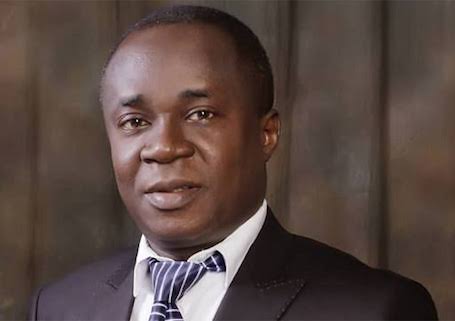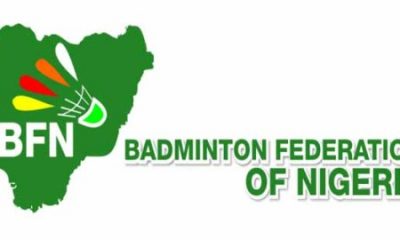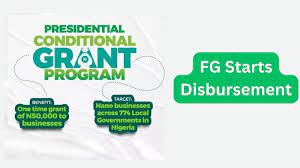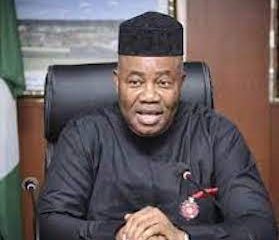Business Analysis
The New forex regime and 2024 Budget Proposals

By Uche Uwaleke
Overall, the 2024 budget proposals hold a lot of promise for the economy if well implemented.
A major snag, however, stems from the likely distortionary impact of the new Forex regime.
A naira float in the face of weak supply and strong demand with its attendant forex market volatility introduces uncertainty in budget implementation.
This is why I consider the N750 to the dollar rate used for the 2024 budget as a tall order.
It’s most likely the exchange rate will be the major cause of wide budget variances in the 2024 budget on account of NAFEM operations.
This is particularly so in respect of the dollar-denominated component of the budget much of which can be found in the over N3 trillion proposed defence spending as well as in recurrent debt expenditure.
A volatile and high exchange rate will increase the cost of servicing external debt and further widen the budget deficit.
In my view, a well implemented and corrupt-free dual (not multiple) exchange rate regime (one official including for debt service and another tier for other transactions) helps to bring certainty in government procurements and short term planning in general.
A related issue has to do with the mode of financing the over N9 trillion deficit and its likely impact on cost of capital for firms and the stock market.
Unlike in previous budgets where the amount voted for new borrowings were split fairly equally between domestic and foreign sources, this time around domestic borrowing is taking up a huge chunk at about 78% (N6.1 trillion out N7.8 trillion provisioned for new borrowings)
This can have the effect of crowding out the private sector, hiking interest rates, increasing cost of funds and depressing the equities market as investors migrate to fixed income securities. The outcome will be a further weakening of the productive sector.
In this regard, the government is advised to explore more opportunities for concessional project-tied loans from multilateral and bilateral sources. This will help to boost forex reserves and stabilize the exchange rate.
With respect to borrowing domestically, it’s important that emphasis should be placed on the use of the right instruments such as infrastructure bonds as opposed to FGN bonds that are inflationary prone.
Uwaleke is Nigeria’s first Capital Market Professor
Business Analysis
CBN’s Monetary Policy Committee Meeting and the Frenzy?

By Ademola Oyetunji
The atmosphere in the Nigeria’s financial sector is in a state of frenzy. Stakeholders are befuddled on why the apex bank’s monetary policy committee have not met. This is because the CBN had twice postponed the meeting under the leadership of its new Governor.
The first postponement scheduled to hold shortly after the appointment of Mr.
Cardoso and his four deputy governors, was obviously put on hold to enable them settle down. The reason could also be that the new management team needs time to study and digest President Tinubu’s 8-point agenda and current trends in the financial system to align them with his vision.Mr. Cardoso at the NASS screening had promised to ensure the independence of CBN. He also pledged to ensure that the CBN under his watch will play its role as a catalyst for growth, and adviser to the government. He said “his-CBN” will shy away from interloping responsibilities.
It is also a common knowledge that President Tinubu had ordered a clean house of the Bank believed to have veered of its mandate under the immediate past governor.
It is also a public knowledge and concern that the Naira has been under attack by speculators and rent seekers, a chronic headache for the Bank’s new helmsmen. Forex illiquidity has also become malignant. Thus, convening the MPC meetings amidst these challenges may not be an immediate priority, rather they have been unobtrusively addressing and stabilizing the financial sector. The gains of these efforts are visible, though the parallel market is still chaotic.
The postponement of what was supposed to be its last meeting for the year further heightens the palpable fear and uncertainties of the consequences of the MPC not meeting. Stakeholders’ fear cannot be dismissed as Nigerians battle economic hardship, rising food inflation and unbridled Naira depreciation.
However, the CBN Act 2007 section 12 saddles the Committee to ensure price stability and support economic policy of the federal government. The Committee consists of the Governor as the chairman, the four deputy governors, two members of Board of Directors, two members appointed by the Governor, and two members appointed by the President to formulate monetary and credit policy.
It is the highest policy making organ of the Bank responsible for reviewing economic and financial conditions in the economy. It also determines the appropriateness of policy applications in short to medium term, and regularly reviews Bank’s monetary policy framework, and adopt changes when necessary.
The Act mandates the Committee to communicate monetary and financial policy decisions effectively to the public and must ensure the credibility of the model of transmission mechanism of monetary policy. It is to meet bi-monthly, except otherwise (as it is the case presently) or on emergency.
Until the appointment of the present CBN Governor, the Committee had met four times under the last dispensation. It is also a public knowledge that boards of federal parastatals and agencies were dissolved by the President with many yet to be reconstituted. The CBN board is one of those dissolved and yet to be reconstituted, neither is it a public knowledge that the President has nominated his two candidates.
Hence, the Bank presently does not have the required number to form a quorum, nor the Governor and his deputies have the constitutional mandate to overtly make certain monetary policy decisions without the approval of the Board.
The concern by the public is normal, particularly the way economic saboteurs have been attacking the Naira and manipulating the parallel forex exchange market. The concern is also noted considering the latest inflationary figure, 27.33%, released by the National Bureau of Statistics (NBS).
But to allay the fears of the public, the Bank’s spokesman, Dr. Isa Abdulmumin had on the eve of the scheduled September MPC meeting issued a press statement to announce its postponement. He regretted any inconvenience the change in date may have caused the Bank’s publics.
The hullabaloo over non-holding of the meetings may have been misplaced but expected. And with Nigeria’s current economic reality, it behooves the economic managers to be strategic in meeting economic saboteurs at their wits ends.
Notable economists and financial technocrats have entertained worries over continuous postponement of the organ’s meeting. They believed it may further heighten economic uncertainties. Mr. Boluwafemi Agboladun, a chartered accountant, expressed fears that the silence from the Bank amidst economic turbulence is unsettling as no concrete reason was given for not holding the meetings.
He was however quick to add that the strategy adopted so far by the new management of the Bank is yielding positive dividend. There is stability in the forex market, and Naira exchange rate is no longer volatile. The strategic management adopted by the CBN so far, he noted, is commendable, making currency peddler unsure of what next is coming out from the Bank.
Agboladun also felt that the new CBN Governor may have decided to start the new year with his own monetary policy calendar after he would have gotten a clear heads-on of the fiscal direction to align it with his monetary policy philosophy. He stressed that, it is better for the CBN and the government to have a clear distinction in roles, unlike the muddled and overlapped responsibilities witnessed in the last administration.
Feranmi Deepak, a public commentator, was not surprised that the meeting, though statutory, has suffered two postponements. He was only worried that the outcome of the meetings would have avail the public of the monetary policy direction of Mr. Cardoso, as it would have road mapped investment decisions by local and foreign investors.
The CBN, he observed, may also be taking its time coming out with its agenda. This, he noted, may be due to the ongoing economic diplomacy drive of the President who has been unrelenting in his travels, marketing Nigeria. Therefore, the CBN, he said, “may be collating all he has been saying to the investing community to develop its monetary policy roadmap as government banker and advisor”.
He was optimistic that the MPC meeting would assume its normal mode next year, when probably the President in his wisdom would have reconstituted the bank’s board to allow for normalcy in its calendar and restore stability in the financial sector.
*Ademola Oyetunji writes fro
Business Analysis
Tweaking CBN Act, NASS Must Tread with Caution

By Chisom Adindu
The ongoing effort by National Assembly to tinker with the Central Bank of Nigeria’s Act, 2007, has been generating heated debate within the polity. The concern has been the rationality of the exercise. This effort is spearheaded by two distinguished Senators, Senators Steve Karimi and Darlington Nwokocha.
The bills are – ‘A Bill to Amend the Central Bank of Nigeria Act 2007, and Matters Connected Therein’, and An Act to Amend the Central Bank (establishment) Act 2007 to Make the Central Bank More Transparent and Accountable in its Operations and to Ensure Enhancement of its functions and for Connected Matters’.
The crux of the two amendments already consolidated by the Senate is the ban on the CBN governor and his deputies from partisan politics, reconstitution of the CBN Board; subjection of CBN staff renumeration to the Salaries and Wages Commission; and ceding the position of the Board Chairman to a person outside the CBN. Also proposed prohibition of use of foreign currency in local transactions. Until this proposal, the Governor doubles as the Board Chairman.
The preoccupation of the sponsors of the bills is to enhance transparency and efficiency of the Central Bank of Nigeria, and to strip its governor of certain powers. The Senate Committee on Banking and Finance is saddled with the responsibility of reviewing and working on these bills for the Senate to take a position.
Whatever is the expectation of the sponsors, it is important that the National Assembly does not in a spasm of emotion erode the independence of the Bank. CBN Act 2007 had settled this.
It was a common knowledge that the immediate past CBN governor’s hiatus and unprofessional conduct by engaging in partisan politics may have warranted this quest. His action was an infraction, and antithetical to his oath of office. It was also against the norms of central banking ethics. Anger against a rare singular infraction should not be used as an excuse to cripple a vital organ of government as the CBN. It amounts to throwing the baby away with the bath water.
An International Monetary Fund (IMF) working paper titled: The Role of Board Oversight in Central Bank Governance: The Legal Design Issues describe the Central Banks as a public law institution established to fulfill essentially sovereign functions delegated to them by the State. It admitted that certain central bank laws explicitly prohibit certain operations.
Continuing, the paper said, for a central bank to be effective, it must enjoy a high level of autonomy vis-à-vis both political institutions and private economic interest. This autonomy it enumerated as: institutional, functional, personal, and financial. Institutionally it said the central bank should not be influenced by the State or private third parties in its decision-making in the context of the performance of its functions, e.g., through ministerial instructions.
Functional points to its capability to implement its functions without direct governmental interference, and Personal ensures that key decisions makers of the central bank (Governor and members of the Executive Board, Monetary Policy Committee and Oversight Boards) are autonomous from political and private economic interest.
The Financial entails the capability of the bank to pursue its mandate by way of the financial means required to do so (the emphasis is mine).
Banning the CBN governor and his deputies from partisan politics is a good proposal, and well approved. But to appoint/impose an outsider as the chairman of the board other that its governor is incongruous with global central banking practice.
Typical of our clime, as being proposed, will not augur well for a critical institution as the CBN. The infraction of its former governor – highly condemned, is not an excuse to deal a fatal blow on the Bank. It amounts to killing a fly with a sledgehammer.
Subjecting its staff salaries to an external body violates the financial independence of the Bank. Infractions committed by its former governor has nothing to do with staff welfare. There are other organs of government earning far higher than the CBN staff, yet the legislators turned the blind eye.
Why are all eyes on the CBN? Are the Nigeria National Petroleum Plc staff salaries a subject of scrutiny by the National Salaries and Wages Commission? The Debt Management Office (DMO), Nigeria Deposit Insurance Corporation (NDIC), and many others. It is public knowledge that the staff of some of these agencies earn fantastically higher, (excluding other perks) than the CBN staff.
The Central Bank of Nigeria like its peers is the heart of the monetary system of the country. Nigeria’s economy is influenced heavily by the actions it takes, thus, any spasm of irrational decisions to alter or whittle what international investors and global partners would see as an erosion of the Bank’s independence, will further hurt the already fragile economy.
It was the Central Bank of Nigeria during the COVID-19 pandemic that ensured the stability of the economy while other organs of government were at a loss on what to do. The CBN should not be politicized. What happened under Godwin Emefiele was a rash decision that should be treated in isolation.
Amending the Act is not investor friendly, and it should be jettisoned. It will also encumber the effectiveness of monetary policy, and once the institution is seen as an appendage of the political class, there will be loss of faith, and confidence, in the economy. Ultimately, the economy will suffer for it.
Mr. Uche Tochukwu, a financial expert, said tweaking the CBN Act now, just because of what happened under Godwin Emefiele will hurt the economy and the integrity of the CBN. He welcomed the decision of the lawmakers to ban the Governor and his deputies from partisan politics but frowned at appointing an outsider as the Bank’s Board Chairman. He said it is an aberration.
Tochukwu called the attempt to subject the CBN staff salary to Salaries and Wages Commission as meddlesomeness. What about their own opaquely fatty allowances the public has decried? Doing that, they advised, will kill the morale of the staff. Are we even sure the staff are earning fantastically, he asked?
The legislators should get serious with other national pressing issues in the economy rather than tampering with the CBN Act. Dr. Babatunde Adisa, an economist expressed this. He said, globally, independence of central banks is high advocacy, why is our own legislators thinking of reversing the CBN gear of progress. He said those advocating for the weakening of the CBN governor’s power or administration of the institution are not in tune with reality.
Thus, the National Assembly should be guided as posterity will not forgive them if they are resolute on this unprofitable voyage.
Chisom Adindu writes from Umuahia, Abia State.
Business Analysis
Counting Cost of Illegal Gold Mining on Nigeria’s Wealth

By Femi Ogunshola
At the recently concluded Green Economic Summit, Governor Muhammed Bago of Niger spoke extensively about the illicit gold trade in the state where according to him, dealers rake in an astonishing 1.2 billion Naira daily.
A recent report by Nigeria Extractive Industry Transparent Initiatives (NEITI) estimated that Nigeria loses about 9 billion dollars annually to illegal mining and smuggling of gold.
This revelation highlights a deep-rooted issue that has severe implications for the nation’s economy and environment.
Bago, speaking at the inauguration of the Mohammed Umar-Bago International Gold Market in Minna, emphasised that: “in spite of the staggering daily turnover in the black market gold trade, the government gains nothing from it.
”This assertion underscores a critical challenge: How do we halt the illegal trade? Can we bring perpetrators to book? What is the implication of their actions on the economy?
How can a state with many impoverished citizens afford to forfeit N1.2 billion daily to illegal miners?
Experts argue that unless Nigeria takes serious action to combat the menace of illegal mining and profiteering, the nation’s economy will continue to languish.
It’s worth noting that a significant portion of these illegal miners are alleged to be foreign nationals, such as Chinese and Lebanese, who collaborate with locals.
These unscrupulous actors strip the country of its precious resources, perpetuating a cycle of exploitation.
Fortunately, some state leaders are beginning to recognise the gravity of the situation hence the attempt by Niger government to inaugurate a gold market
Bago’s commitment to a gold market aims to ensure that gold mining benefits the state economically. This step holds promise for revenue generation and development.
In Zamfara, illegal mining has become a rampant issue, further exacerbating the state’s poverty index.
Like Bago, Governor Dauda Lawal has initiated measures to combat this problem, as illegal miners have been linked to increased insecurity in the region.
He understands the urgent need for the state to regain control over natural resources and protect its citizens from ‘gold thieves’.
Worried by the activities of illegal miners, Zamfara government on Sept. 23 announced a ban on all illegal mining activities in the state.
He directed law enforcement officers to take stringent actions against violators, including shooting those involved on sight.
Lawal said he was ready to tackle illegal mining, a trade often linked to financing criminal activities and exacerbating insecurity.
In Osun, illegal mining has stifled the state’s potential to profit from its natural resources.
The damage caused by these illicit activities is severe, affecting farmlands and water sources. Residents are concerned that the state government has failed to address this crisis.
Sola Rotimi, a concerned indigene of Osun Indigene, said that in Osogbo, Ijesha, and other communities, the extent of the damage done by illegal miners to farmland is monumental.
He said the rate at which they also pollute their water sources and remains a serious health concern for them.
Rotimi said it appears the state government was helpless as illegal miners operate with audacity and do not care about the impact of their actions on the economy and environment.
He said in Osun State, illegal miners, displaced from Zamfara due to military actions and other exploiters, have reportedly swarmed areas like Arimoro and Isale General in Ilesa.
According to him, they also operate in rural communities spanning Obokun, Atakumosa East, Atakumosa West, and Oriade local government areas.
The Federal Government seems poised to rescue the sector from non-state actors.
The Minister of Solid Minerals Development, Dele Alake, has issued a 30-day ultimatum to illegal mines align with government’s mining policies or face severe legal consequences.
He said mine police, comprising officers from the Nigerian Police Force, would be deployed to apprehend perpetrators.
He said the Ministry is introducing a security task force with mine police as a component to combat illegal mining and smuggling nationwide.
The overarching question is how long will federal and state governments allow these elements plunder our commonwealth?
Mining stakeholders urge governments to match their words with action and ensure that the nation’s solid minerals, gold in particular, is used for the good of all as is the case with oil and gas.





















